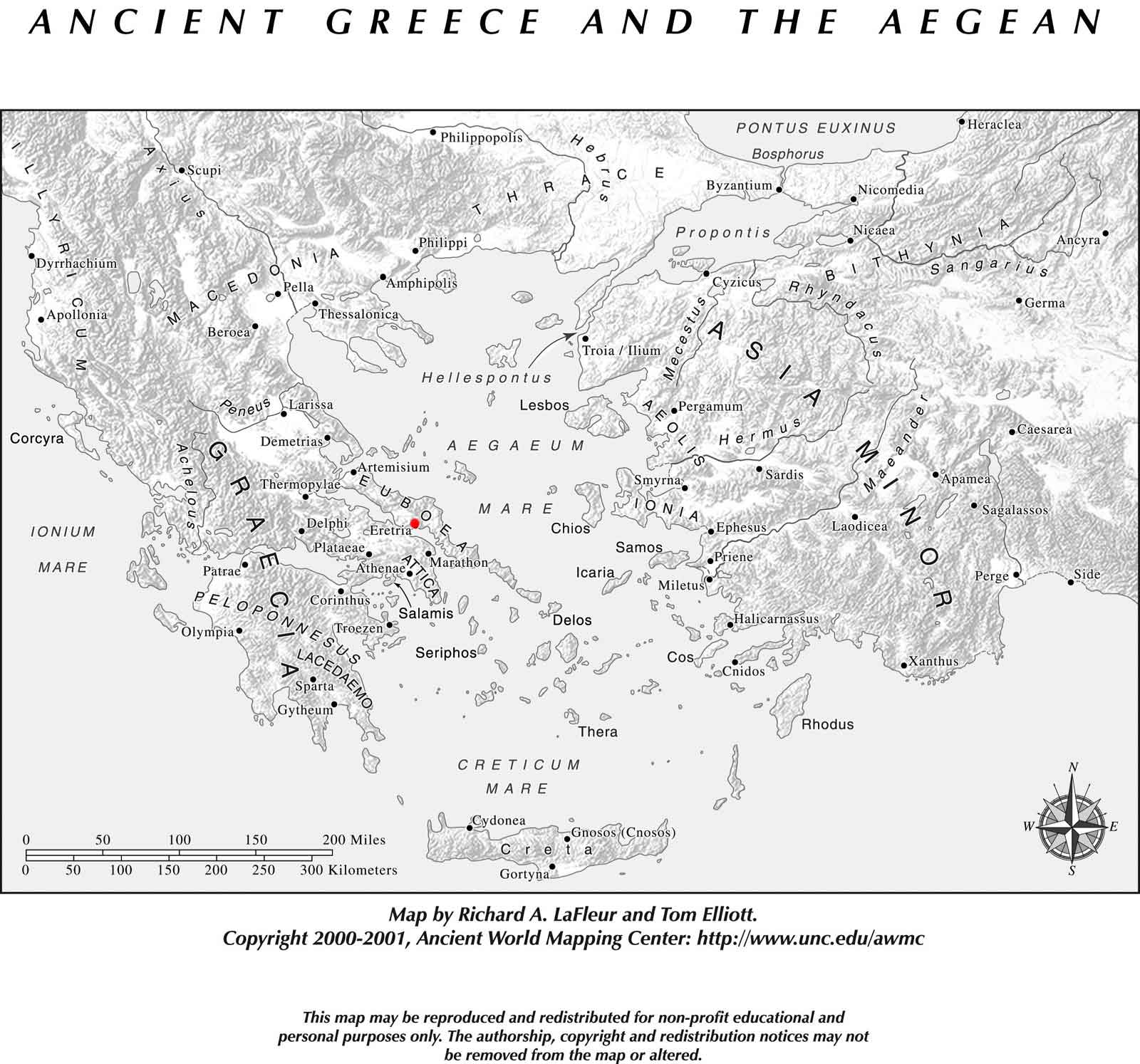A town of the island of Euboea, situated on the coast of the Euripus southeast of Chalcis. It was said by some to have been founded by a colony from Triphylia in Peloponnesus; by others its origin was ascribed to a party of Athenians belonging to the deme of Eretria. The latter opinion is far more probable, as this city was doubtless of Ionic origin ( Herod.viii. 46). We learn from Strabo that Eretria was formerly called Melane´s and Arotria, and that at an early period it had attained to a considerable degree of prosperity and power. The Eretrians conquered the islands of Ceos, Teos, Tenos, and others; and in their festival of Artemis, which was celebrated with great splendour, three thousand soldiers on foot, with six hundred cavalry and sixty chariots, were often employed to attend the procession (cf. Livy, xxxv. 38). Eretria, at this period, was frequently engaged in war with Chalcis, and Thucydides reports (i. 15) that on one occasion most of the Grecian States took part in the contest.The assistance which Eretria then received from the Milesians induced that city to cooperate with the Athenians in sending a fleet and troops to the support of the Ionians, who had revolted from Persia at the instigation of Aristagoras ( Herod.v. 99), by which measure it became exposed, in conjunction with Athens, to the vengeance of Darius. That monarch accordingly gave orders to his commanders, Datis and Artaphernes, to subdue both Eretria and Athens and bring the inhabitants captive before him. Eretria was taken after six days' siege, and the captive inhabitants brought to Asia. Darius treated the prisoners kindly, and settled them in the district of Cissia ( Herod.vi. 119). Eretria recovered from the effects of this disaster and was rebuilt soon after. We find it mentioned by Thucydides, towards the close of his history (viii. 94), as revolting from Athens on the approach of a Spartan fleet under Hegesandridas, and mainly contributing to the success obtained by that commander.
After the death of Alexander, this city surrendered to Ptolemy, a general in the service of Antigonus; and in the Macedonian War, to the combined fleets of the Romans, the Rhodians, and Attalus (Livy, xxxii. 16). It was subsequently declared free by order of the Roman Senate (Polyb. xviii. 28 foll.). This place, as we learn from Athenaeus, was noted for the excellence of its flour and bread. At one time it possessed a distinguished school of philosophy and dialectics.
The ruins of Eretria are still to be observed close to a headland which lies opposite to the mouth of the Asopus in Boeotia. (Harpers Dictionary of Classical Antiquities, 1898)
